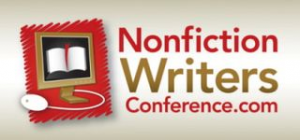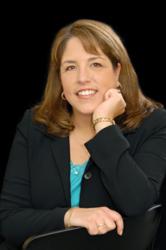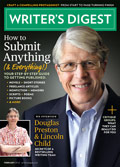WRITERS. Registration is now open for The Nonfiction Writers Conference, a 3-day online teleconference for writers who want to learn how to publish profitable non-fiction books. Five 50-minute sessions will be presented from 9 am to 3 pm PST on Wednesday, May 16, Thursday, May 17, and Friday, May 18.
 Topics include traditional and self-publishing, e-books, virtual book tours, social media, Amazon sales strategies, blogging, SEO, professional speaking, freelance writing, information product sales, and other book marketing tactics.
Topics include traditional and self-publishing, e-books, virtual book tours, social media, Amazon sales strategies, blogging, SEO, professional speaking, freelance writing, information product sales, and other book marketing tactics.
Conference organizer Stephanie Chandler has assembled a stellar line-up of 15 speakers, including:
- Dan Poynter, author of “The Self-Publishing Manual”
- Mark Coker, founder of the Smashwords.com e-book publishing platform
- John Kremer, author of “1001 Ways to Market Your Books”
- Michael Larsen, literary agent
- Penny Sansevieri, author of “Red Hot Internet Publicity”
- Jane Atkinson, author of “The Wealthy Speaker”
- Jim Horan, author of “The One Page Business Plan”
- D’vorah Lansky, author of “Book Marketing Made Easy”
- Roger C. Parker, author of “Looking Good in Print”
- Karl Palachuk, author of “Publish Your First Book: A Quick-Start Guide to Professional Publishing in a Digital Age”
- Dana Lynn Smith, author of “How to Sell More Books on Amazon”
- Kevin Smokler, author of “Bookmark Now: Writing in Unreaderly Times”
- Peter Bowerman, author of “The Well-Fed Writer”
- Bill Belew, a search engine optimization expert.
Chandler, who has written a book “From Entrepreneur to Infopreneur: Make Money with Books, eBooks and Information Products,” will also present a session.
The speakers will discuss:
- How to write a compelling book with market appeal.
- Methods for generating business revenue and opportunities with your book.
- Simple ways to attract valuable media exposure.
- How to break into professional speaking–from free to fee!
- Ways to build your platform and get known as an expert in your industry.
- How to take advantage of low-cost, high-return social media marketing strategies with Facebook and Twitter.
- What it takes to turn your website into a traffic-generating machine.
- The pros and cons of self-publishing vs. traditional publishing and mistakes to avoid.
- Real-world advice on how to land a book deal.
- Insider secrets for promoting your book online.
- How to generate passive income from ebooks, special reports and other information products.
 Stephanie Chandler conducted the first Nonfiction Writers Conference in 2010. She is the author of several books, including “Own Your Niche: Hype-Free Internet Marketing Tactics to Establish Authority in Your Field and Promote Your Service-Based Business,” “The Author’s Guide to Building an Online Platform: Leveraging the Internet to Sell More Books,” and “Booked Up! How to Write, Publish, and Promote a Book to Grow Your Business.”
Stephanie Chandler conducted the first Nonfiction Writers Conference in 2010. She is the author of several books, including “Own Your Niche: Hype-Free Internet Marketing Tactics to Establish Authority in Your Field and Promote Your Service-Based Business,” “The Author’s Guide to Building an Online Platform: Leveraging the Internet to Sell More Books,” and “Booked Up! How to Write, Publish, and Promote a Book to Grow Your Business.”
Several registration options are available, including discounts for writers who register early. If you can‘t listen to all of the sessions live, you can register to receive MP3 recordings of all sessions and/or transcripts of the sessions.
LINKS









